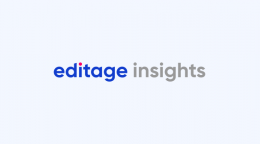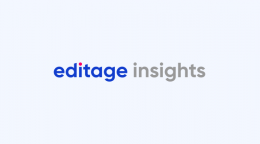Experts speak – Why is diversity in peer review important for science?

As you may know, Peer Review Week 2021 focuses on the interesting theme of Identity in Peer Review. If you’re wondering why this was selected as the theme or how “identity” is connected with science or research, you will find this article very insightful. To start Peer Review Week 2021 on an exciting note, we decided to kick off Day 1 by reaching out to members of the scholarly publishing community who’ve been kind enough to share their views, anecdotes, and suggestions on facilitating diversity in peer review. Specifically, we asked them two questions:
What are your thoughts on diversity in peer review?
Why is it important for research and science?
Dr Shirin Heidari
Dr Shirin Heidari is the founder of GENDRO and Senior Researcher at the Graduate Institute of International and Development Studies in Geneva. Dr Heidari is the founding chair of the Gender Policy Committee of European Association of Science Editors, and the lead author of the Sex and Gender Equity in Research (SAGER) Guidelines, as a tool to address gender bias in scholarly communication, as presented in her TEDx talk.
The peer review process is not spared from the sexism, racism and other biases in our society. Limited data reveal gender imbalances in pool of reviewers and gender biases in the peer review and editorial decision-making processes. Improving diversity in peer review can alleviate some of these problems. Peer reviewers are powerful actors that define quality of publications and are influential in what can be published. Diversity (including gender balance) can minimize biases and positively influence the research content. For example, it can support gender sensitive reporting or better reflect diverse expertise and perspectives, while it can help improving diversity in authorship. Being a peer reviewer is also considered an academic recognition and a gateway to editorial board membership, which are merits important to career advancement in academia.
Catherine Cocks
A twenty-year veteran of scholarly publishing, Catherine Cocks is the assistant director and editor-in-chief at Michigan State University Press. She is also the co-editor of Feeding the Elephant, an H-Net forum on scholarly communications, and the author of two scholarly books, Doing the Town (University of California Press, 2001) and Tropical Whites (University of Pennsylvania Press, 2013). Reluctantly, she also tweets @catherine_msup.
Identity and diversity are important in peer review today because they’ve always been important. For a long time, only a narrow range of people were able to get the education and career opportunities necessary to qualify as a peer reviewer. Though opportunities have broadened, structural inequities continue to shape who can become and succeed as an academic researcher. Particularly when scholars from marginalized groups challenge the intellectual status quo, the inherent conservatism of peer review can prevent them from getting published or from publishing in the most prestigious outlets, thus reproducing inequity and reducing innovation.
To interrupt this cycle, editors need to deliberately seek a diverse range of reviewers and to value a broad range of perspectives. Resources like Women Also Know Stuff, People of Color Also Know Stuff, and many others can help. In addition, journals and publishers should explicitly charge reviewers with evaluating whether a manuscript draws on a broad range of scholarship, including relevant works by scholars from marginalized groups. Citing only a narrow range of scholars—however prolific and well-known—should be considered a sign of inadequate research.
We must also push the boundaries of what it means to be a “peer.” Especially when a work treats a specific community or a sensitive social issue, the injunction “nothing about us without us” should inform the selection of reviewers. Are a position at a prestigious university, or tenure, or publication in top-ranked journals or at leading presses the best criteria for “peers” when all of those things are both scarce and inequitably distributed? Well-qualified “peers” occupy many other positions and participate in the intellectual enterprise in many ways. Editors need to look for them to do our part in dismantling the structural barriers to equity in publishing.
Nour Al-muhtasib
Nour is a postdoc at Yale University in New Haven, CT. Her work focuses on cue induced relapse in relation to cocaine addiction. Other topics she is passionate about include science education and communication, inclusion within academia, and giving back to the community. You can find her on her website: https://www.nouronal.com.
As in every aspect of research and science, diversity is of outmost importance in the peer review process. For example, not all manuscripts come out from a lab in which English is the first language. I have reviewed such manuscripts and seen reviews by fellow colleagues that are very critical of the entire work solely due to the language. The colleagues will ignore the wonderful science because the English isn’t perfect. We should be focusing on the science and providing support for language skills. However, some of my colleagues see these as deficits in science as opposed to a reflection of the language skills available to someone. This is just an example, but the more people understand where others might be coming from and their life experiences, the more we are able to lift each other up and get good science out there.
Veronica Mariani
Veronica is the CEO of ReviewerCredits, an innovative startup in the academic publishing industry which has developed a digital platform to certify, reward, and recognize the value of peer review. She is an experienced entrepreneur, advisor, and investor. As a business angel, she invests in startups mainly in the Italian digital industry. Veronica is passionate about digital transformation and female empowerment.
I think that diversity is important in approaching life as a whole, because different ways of thinking offer a wider spectrum of observation. Having said that, there is a huge gap in the proportion of male and female population in science, which brings with it, a huge minus of value for scientific progress as well.
At ReviewerCredits.com, we’ve observed that after the pandemic, the number of female users has increased (as they are interested in being rewarded and recognized by the scientific community for their work) but at the same time, the amount of peer reviews registered on our platform by female researchers has decreased. Perhaps, women have been able to focus less on work as compared to their male colleagues during the lockdown since they are more likely to take care of their families and children (being a mother of four kids myself, I can confirm that this is true). We are working hard at ReviewerCredits to sustain diversity and inclusion of all scientists in academia. For example, we are deploying (and will release in few days) a new functionality which will allow each journal indexed in ReviewerCredits to show the gender mix and balance of peer reviewers. Thanks to this innovative initiative, important gender-balance metrics will be made readily available to the community; it is now the responsibility of the publishing industry to make a good use of it.
We hope you enjoyed reading these diverse perspectives. A big thank you to Shirin, Catherine, Nour, and Veronica for enthusiastically sharing their views on such a relevant academic issue! As a researcher, editor, peer reviewer, or someone else in the publishing industry, how do you think you can contribute to making academia more diverse and inclusive? Let us know in the comments below!
For more interesting views on peer review, click on the Peer Review Week 2021 tab on the top right corner of your screen.
Comments
You're looking to give wings to your academic career and publication journey. We like that!
Why don't we give you complete access! Create a free account and get unlimited access to all resources & a vibrant researcher community.

Subscribe to Journal Submission & Peer Review


















